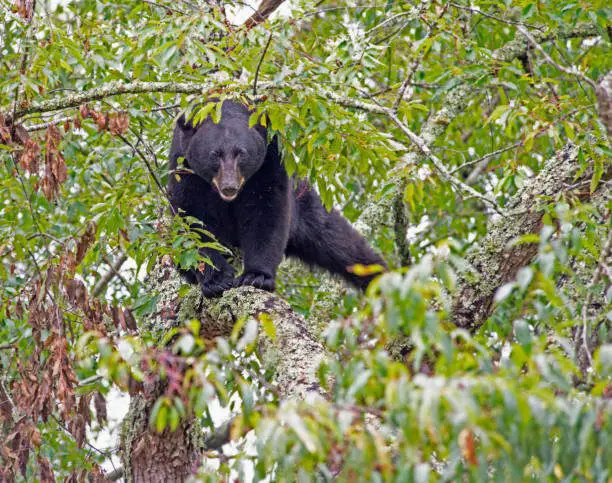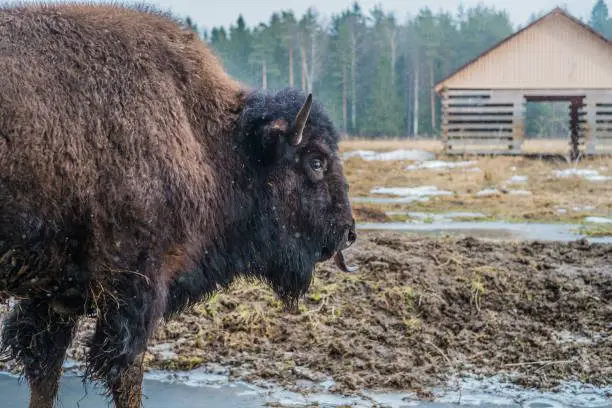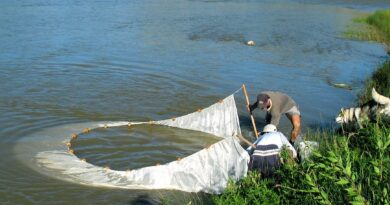Duties of Wildlife Administrators and Wildlife Protection Services
Subordinating wildlife administrations to higher-ranking bodies in which timber or forest industry interests may easily prevail can foster great dependency. High-level decisions may well choose to ignore the technical arguments in favour of wildlife.
In practice, the autonomy of wildlife policy-makers depends very much on the personal and political influence of the head of the wildlife service. Interviews and surveys do show, however, that many wildlife administrators see themselves as islands in a sea of public and official indifference, trammeled by inappropriate policies and sterile bureaucracies.
This subordination, combined with the fact that staff, funds and equipment for the wildlife services have low priority, seriously hinders development efforts. Wildlife management can be defined as the process of maintaining certain wildlife populations, including endangered species, at desirable levels on the basis of scientific, technical and traditional knowledge.
Sustainable wildlife management adds to this definition the objective of balancing the economic, ecological and social values of wildlife, with a view to protecting the interests of present and future generations.
Thus, this concept goes beyond the protection of interests related to hunting and protection for individual species and rather focuses on wildlife as a renewable natural resource in a holistic way.
Duties of Wildlife Administrators
The work of the wildlife administrations runs the gamut from planning action and strategy to such mundane duties as issuing licenses, keeping statistical records, processing infractions, managing protected areas, and so forth.
Wildlife Protection Services
Wildlife protection services are necessary to ensure effective compliance with the regulations governing wildlife utilization. This is vitally important in tropical countries where most hunters disregard or do not know the existing laws.
Enforcement of Wildlife Legislation
Application and enforcement of laws to all taxa are inconsistent. Although state authority over the allocation of the take of resident game species is well defined, country, local, or housing development ordinances may effectively supersede state authority.
Decisions on land use, even on public lands, indirectly impact allocation of wildlife due to land use changes associated with land development.
Species-based International Agreements
Endangered species legislation involves a specialized legal approach to wildlife management.
Read Also : Challenges of Forest Administration and Administration of Forest Resources
It focuses exclusively on the identification and restoration of species that have reached critically low population levels, on the basis of defined criteria and procedures for listing these species and at least two general mechanisms designed to ensure recovery of individual species.
Listing criteria and procedures are based on science- based definitions of “threatened” and/or “endangered,” both of which imply an assessment of the status of the species and the threats to their continued survival.

The primary mechanism for recovery is the requirement that government agencies and private developers consider listed species in designing and constructing projects and include adequate protection measures to minimize or mitigate project impacts and ensure the species long-term survival or recovery.
The second mechanism is the prohibition of direct and/or incidental “take” of the species in question. Take includes the killing of such species by whatever means (not just hunting), as well as any actions that remove a species from its habitat, destroy critical habitat or otherwise harm, harass, or injure the species.
Ensuring Clarity in the Institutional Set-up
Another general principle for good legal drafting, which is also applicable to wildlife management laws, is that the law should clarify the mandate and functions of all public authorities related to wildlife management.
Legal mandates refer to legal provisions requiring or allowing government agencies or persons to engage in activities affecting the resource or its components.
This is a deliberately broad concept that encompasses all possible actions, activities, permissions, or even prohibitions.
Usually, legal mandates are framed in general terms, thus resulting of difficult practical application, with no guidance as to the exercise of powers, limits to discretion or procedures for decision- making.
Possibly, the law should provide some guidance to the exercise of public discretion, in order to increase the legitimacy and accountability of public authorities.
Furthermore, with a view to enhancing the accountability of wildlife authorities and avoiding conflict of interests, the law should avoid the possibility of mixing management/commercial activities and control functions in the same (public or private) body.
In conclusion, the role of wildlife administrators in managing wild fauna has really strengthened the Nation’s wildlife reserve. However, there has been weak enforcement of wildlife legislations across the country and beyond.
Read Also : Impact of Livestock Diseases and Solutions



